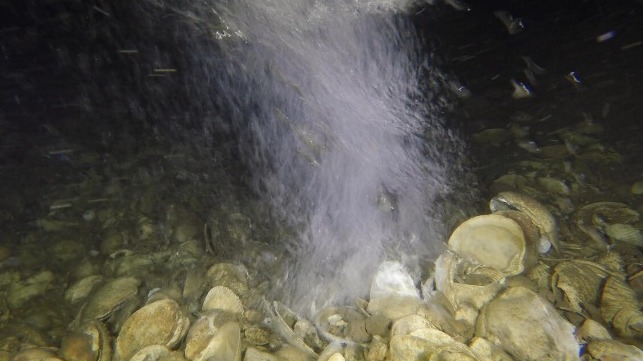Greenpeace Finds Long-Running Methane Leak in UK North Sea

Greenpeace reported Monday that its patrol ship Esperanza has located two large methane leaks at an old offshore well site in the UK North Sea. The "gas-emitting craters" on the seabed were allegedly caused by a blowout during a drilling operation in 1990, and they are still releasing the powerful greenhouse gas into the atmosphere.
“Like many places across the North Sea, climate-destroying methane has been leaking here for decades, yet the oil and gas industry, instead of closing the leak and monitoring it, continues to drill holes in the sea bed, while decision-makers turn a blind eye,” said Dr Sandra Schöttner, a marine biologist who heads the scientific team aboard the Esperanza.
According to Greenpeace, the leaks stem from a drilling accident during a 1990 exploration campaign for then-operator Mobil North Sea (now ExxonMobil). The rig was targeting an oil reservoir at well site UK22/4b, but it found a gas pocket instead, resulting in a blowout large enough to create the 15-to-50-yard craters on the seabed. Greenpeace revisited the site with an ROV and found that it was still leaking (image at top).
A 2011 site visit by a different team estimated the leak at about 90 liters of gas per second. Custody of the site now resides with the UK government, which has opted to wait for the reservoir to release its contents, according to Greenpeace.

that matters most
Get the latest maritime news delivered to your inbox daily.
"We need a rapid change to renewable energies and a just shift of fossil fuel workers to industries with a future. We need governments to bail out the climate and workers, not the polluters,” said Schöttner.
Greenpeace estimates that active oil and gas production facilities are a much larger source of fugitive methane emissions in the North Sea, with releases totaling some 72,000 tonnes per year.
